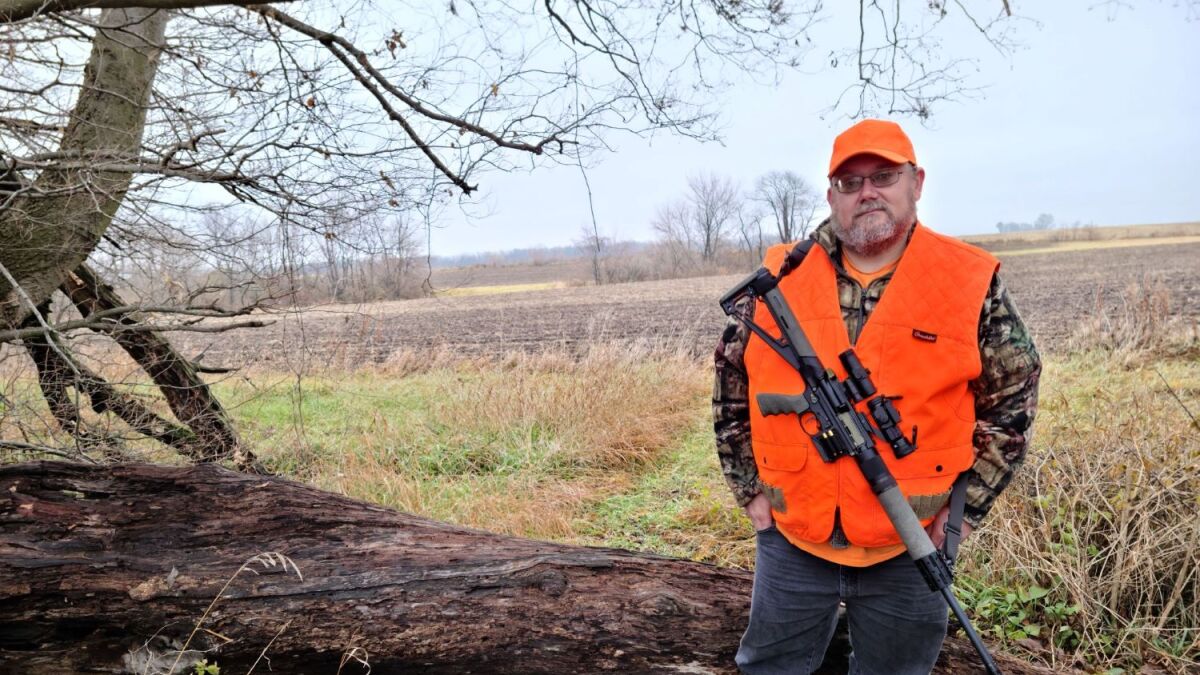Mike Foulk strolled along the periphery of a harvested farm field southeast of Macomb just after daybreak on a misty, damp, and brisk morning in early December.
In the midst of firearm hunting season in Illinois, Foulk’s aim was to catch a glimpse of a deer, being among a dwindling group of firearm deer hunters in the state.
While duck hunting holds his primary interest, the previous year’s unsuccessful deer hunt prompted him to shift his focus. Reflecting on the significance of hunting for sustenance, Foulk emphasized its role in providing for his family and the cost-effectiveness compared to purchasing meat from a store.
Residing in Macomb with his wife Stephanie and their two sons, Foulk, a hunter of approximately twelve years, shared his journey into the realm of hunting.
Having been exposed to firearms from a young age with an emphasis on respect rather than fear, Foulk embarked on his hunting venture at the age of 31, guided by his knowledgeable father-in-law.
Owning the land where Foulk hunts, one of Stephanie’s uncles facilitated his hunting expeditions, leading to the successful takedown of several deer over the years, with his inaugural deer harvested in 2011 marking a memorable milestone.
Amidst the tranquility of the morning hunt, Foulk observed a coyote in the distance through his binoculars, highlighting the shared pursuit of hunting in the natural environment.
With a decline in hunting participation across Illinois in recent years, efforts are underway to reverse this trend, as evidenced by initiatives like the Illinois Learn to Hunt program.
Dan Stephens, the Program Manager of the program, aims to introduce newcomers to hunting, particularly appealing to millennials seeking to engage in the local food system and contribute to conservation efforts through hunting.
Factors contributing to the decline in hunting include demographic shifts and challenges in securing hunting access due to liability concerns and economic considerations for landowners.
Contrary to the stereotype of “trophy hunters,” many individuals, including Stephens and his wife, hunt primarily for sustenance, transitioning away from commercially produced meat towards self-harvested alternatives like deer.
Highlighting the economic impact of hunting on the national scale, a report emphasized the substantial retail sales, job creation, and income generation associated with recreational hunting and target shooting in the U.S.
Despite returning empty-handed from his hunt, Foulk viewed the morning as time well spent, recognizing the unpredictable nature of hunting and the intrinsic value of immersing oneself in nature away from modern distractions.
As he packed up his gear and departed in his white 1997 Jeep, Foulk looked forward to future hunting opportunities, cherishing the chance to provide for his family while relishing the serenity of the natural world.
This story was produced by Tri States Public Radio, relying on the support of its audience to deliver impactful news coverage to the regions of west central Illinois, southeast Iowa, and northeast Missouri.
